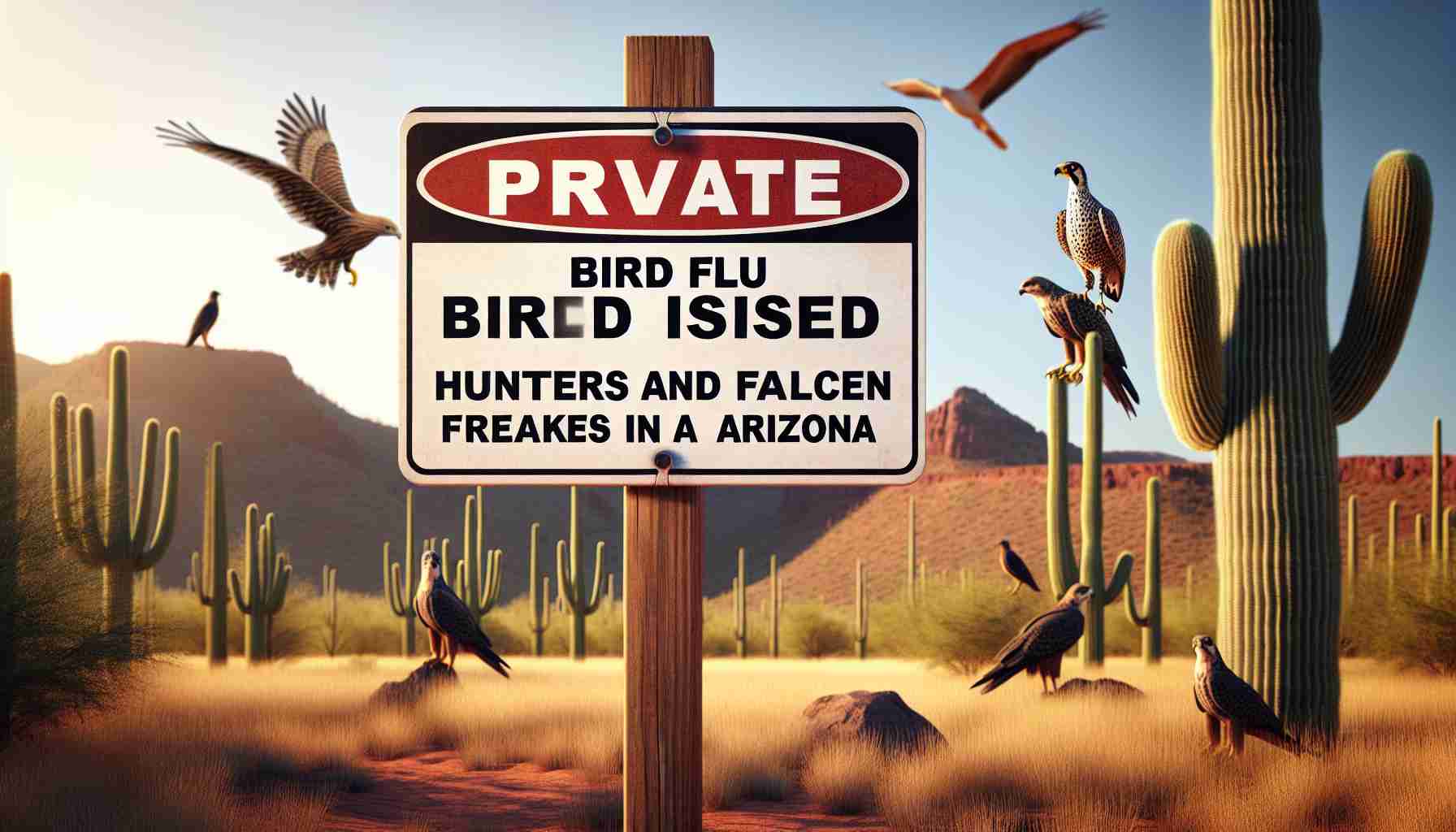Urgent Alert for Arizona’s Wildlife Enthusiasts
In light of the recent confirmation of avian influenza cases within Arizona, the Arizona Game and Fish Department (AZGFD) has alerted hunters and falconers about potential health risks. Avian influenza, commonly known as bird flu, is a highly contagious viral infection that primarily affects birds, yet it can occasionally infect humans as well.
The virus spreads through direct contact with infected birds or their bodily fluids, such as saliva or feces. Those in close proximity to birds, particularly those working with domestic animals, face a higher risk. While human cases are rare, the Centers for Disease Control and Prevention (CDC) recently reported an alarming rise in confirmed cases across the United States.
The AZGFD’s warning comes after two employees in Pinal County tested positive following exposure to an infected flock. The illness has been detected in several areas of Arizona, including Maricopa County’s wastewater. Infected wild birds may show strange behaviors, such as disorientation or difficulty flying.
To safeguard against the virus, AZGFD advises several precautionary measures for hunters. They recommend only harvesting healthy-looking birds and practicing stringent hygiene, such as wearing gloves and thoroughly washing hands afterward. Falconers are encouraged to limit hunting activities, especially near wetlands.
For anyone observing sick or deceased wild birds, it is crucial to report these incidents to the AZGFD immediately. Protecting both wildlife and public health is a shared responsibility that requires vigilance.
Avian Influenza Alert: What You Need to Know to Protect Arizona’s Wildlife
Understanding Avian Influenza in Arizona
As Arizona grapples with recent confirmed cases of avian influenza, commonly known as bird flu, wildlife enthusiasts, hunters, and falconers must remain vigilant. This highly contagious viral infection primarily impacts birds and poses a risk to public health. Its transmission typically occurs through direct contact with infected birds or their bodily fluids, such as saliva and feces.
Health Risks and Precautions
The Arizona Game and Fish Department (AZGFD) has issued alerts in response to confirmed cases in Pinal County, where two employees contracted the virus after exposure to an infected flock. The virus’s spread has been noted in various locations, including Maricopa County, where it was detected in wastewater.
While human infections are rare, a recent spike in cases across the United States has drawn attention to the need for precautionary measures. The AZGFD recommends that hunters only harvest birds that appear healthy and stresses the importance of hygiene practices, such as wearing gloves and washing hands thoroughly after handling any birds.
Symptoms and Reports
Infected wild birds may exhibit abnormal behaviors, including disorientation or difficulty in flight. AZGFD urges anyone who observes sick or dead birds to report these instances immediately, emphasizing that swift reactions can help curb the virus’s spread.
Important Measures for Hunters and Falconers
1. Practice Hygiene: Use gloves when handling birds, and wash hands thoroughly afterward.
2. Harvest Wisely: Only hunt and consume birds that show no signs of illness.
3. Limit Exposure: Falconers should minimize hunting near wetlands and avoid areas where infected birds have been reported.
Features of Avian Influenza
– Symptoms in Birds: Birds infected with avian influenza may display lethargy, lack of coordination, or respiratory distress.
– Human Infection: Although rare, human cases have been reported, emphasizing the importance of protective measures.
– Transmission: The virus can spread through the environment; hence, hunters should avoid contaminated areas.
Potential Impacts and Controversies
The emergence of avian influenza raises concerns about not only wildlife health but also environmental sustainability and public safety. Increased surveillance and biodiversity conservation are becoming critical as avian influenza continues to circulate.
Reporting and Awareness
Wildlife enthusiasts are encouraged to educate their communities about bird flu symptoms and safe practices. Reporting sick or dead birds to the Arizona Game and Fish Department is essential to managing and mitigating the outbreak.
Conclusion
Avian influenza poses a significant risk to both Arizona’s wildlife and its residents. By remaining informed and proactive, hunters and falconers can protect themselves and contribute to safeguarding the state’s ecological health. Stay alert and ensure that you adhere to the guidelines set forth by the AZGFD to minimize risks associated with this viral infection.
